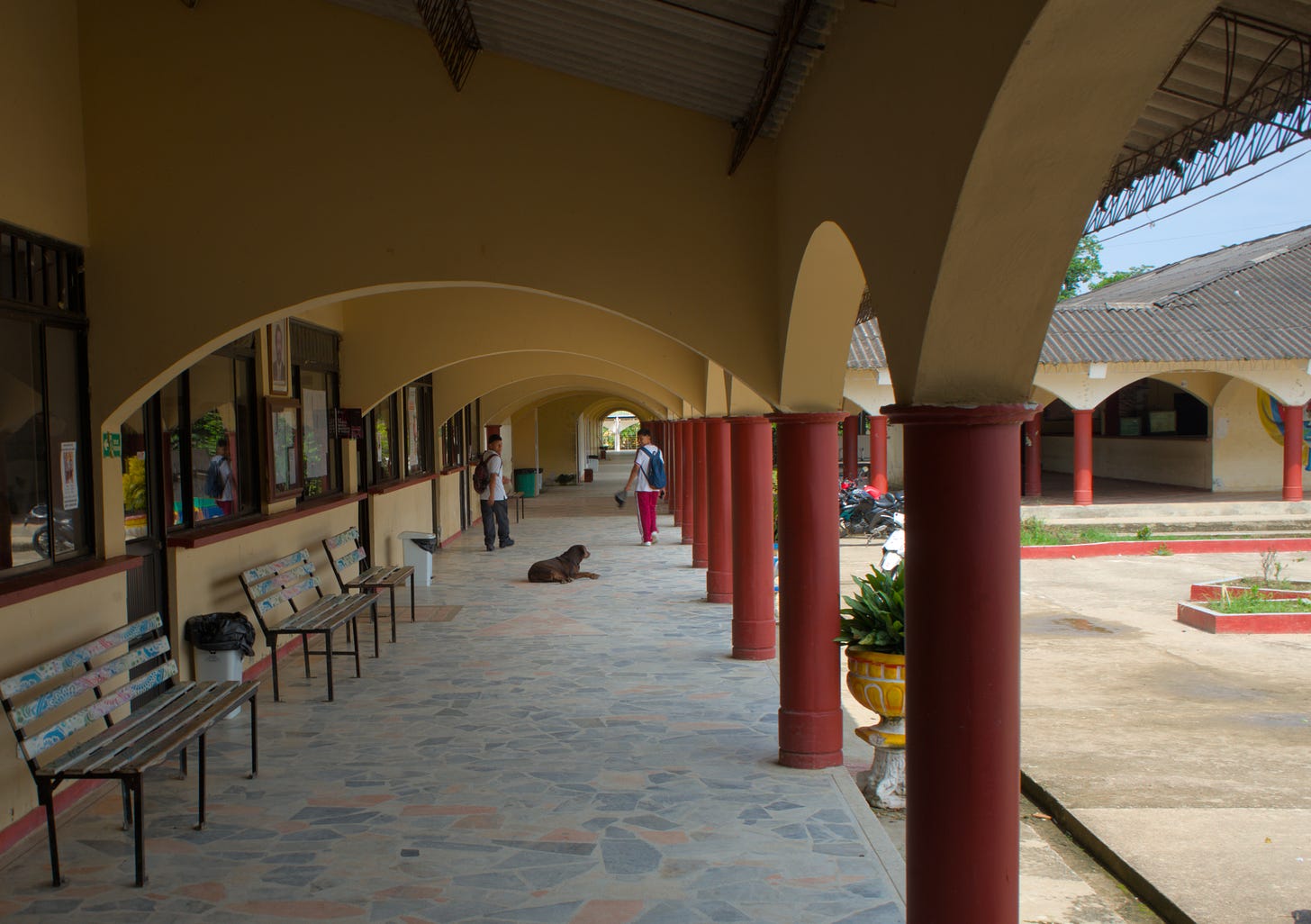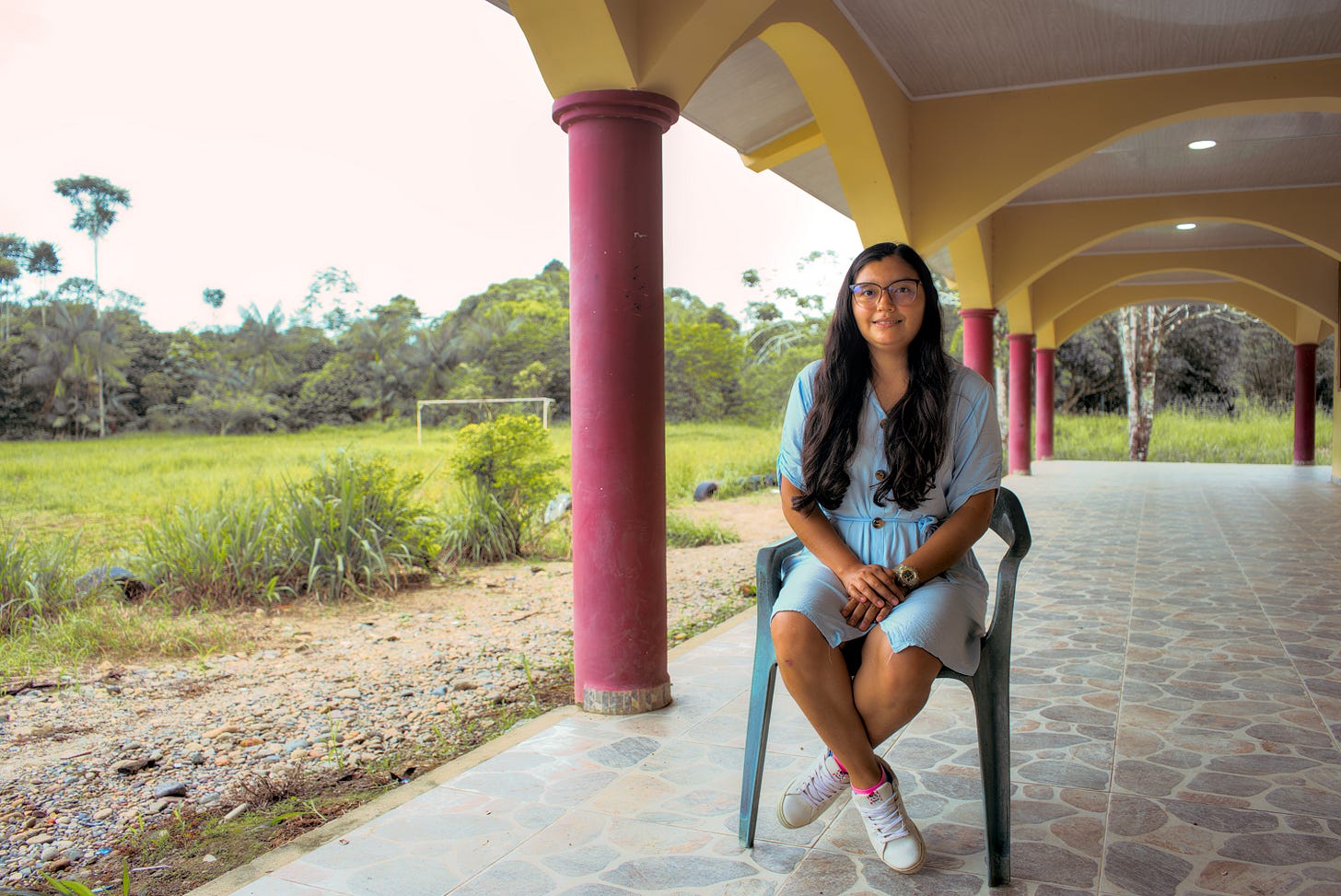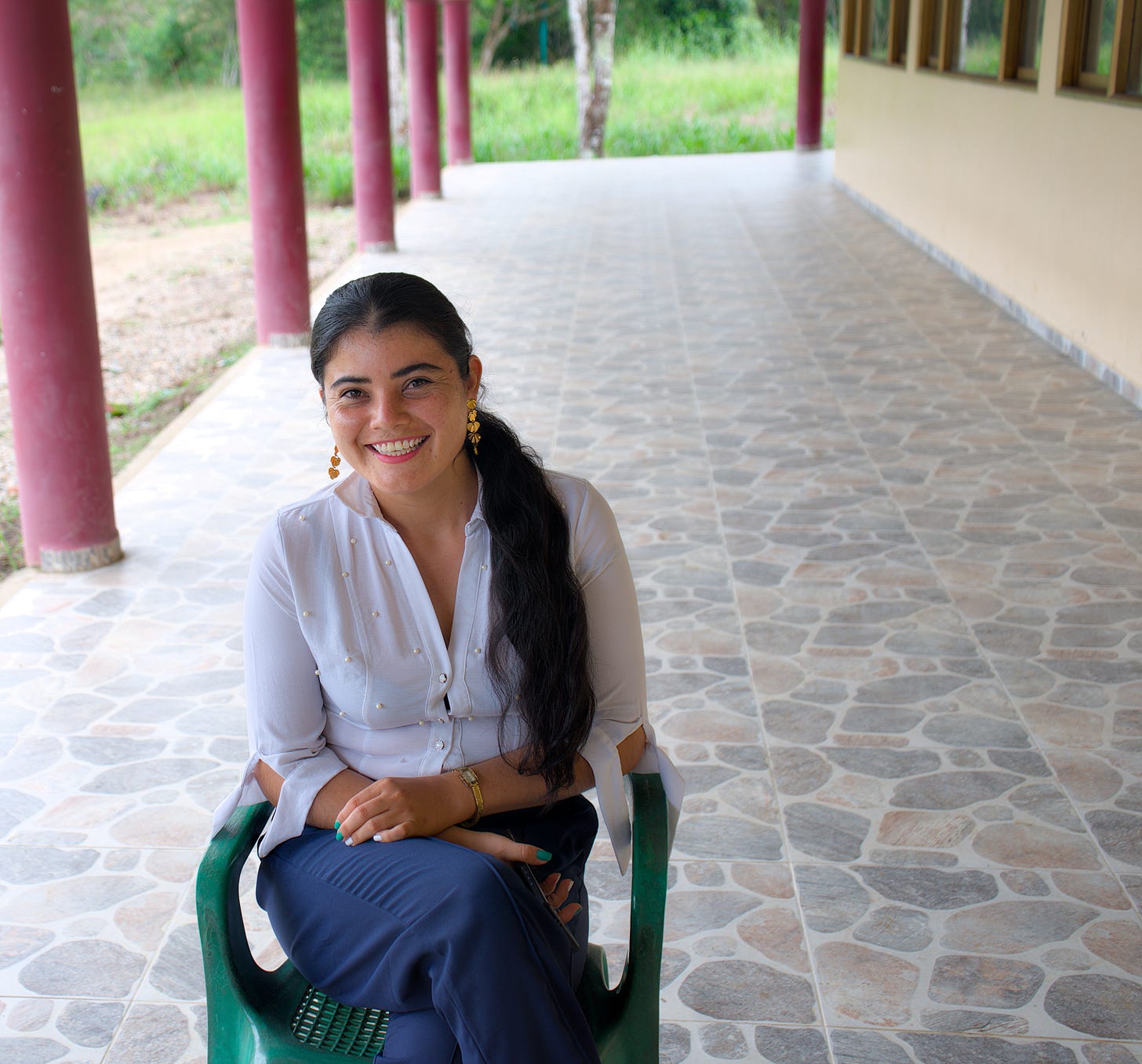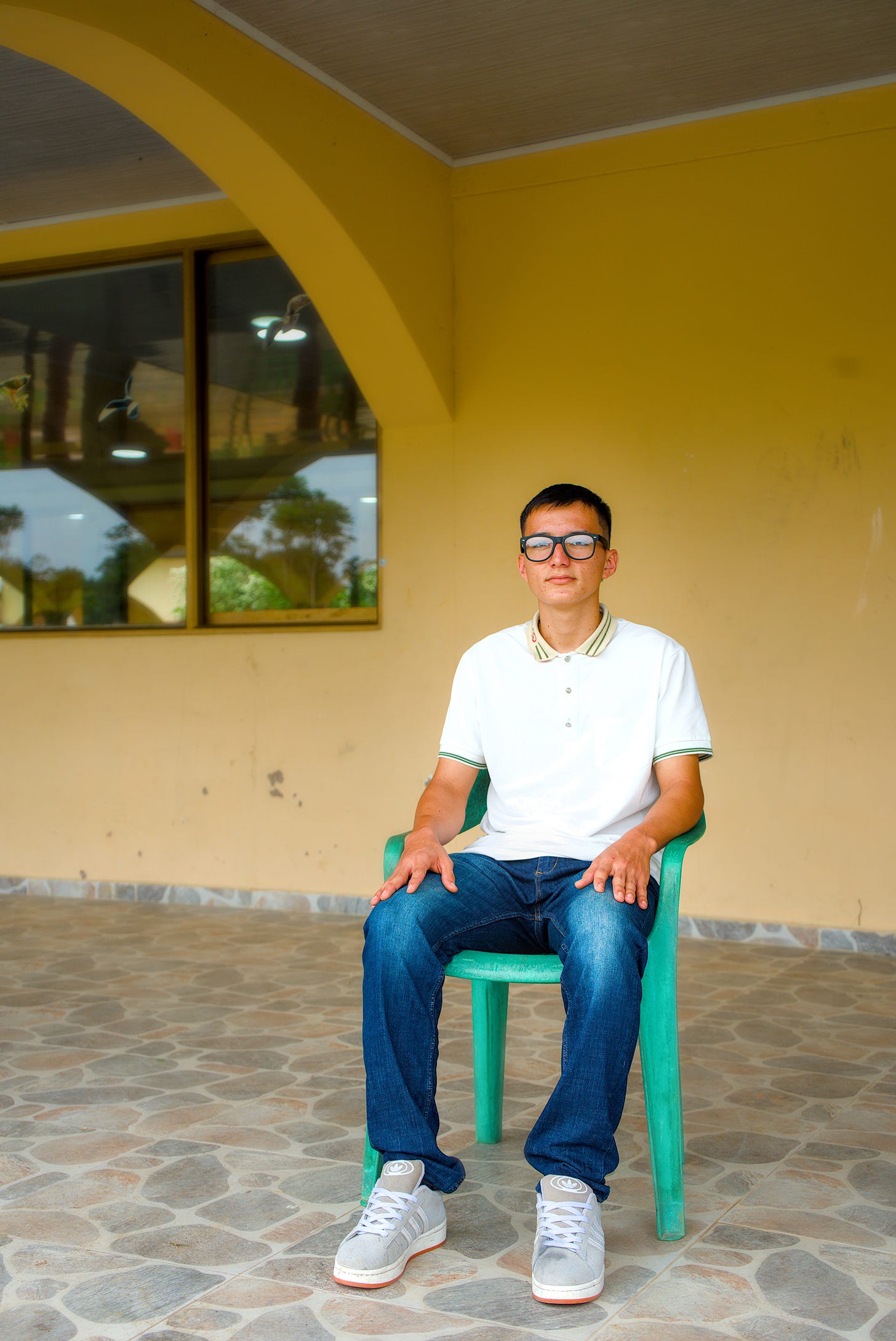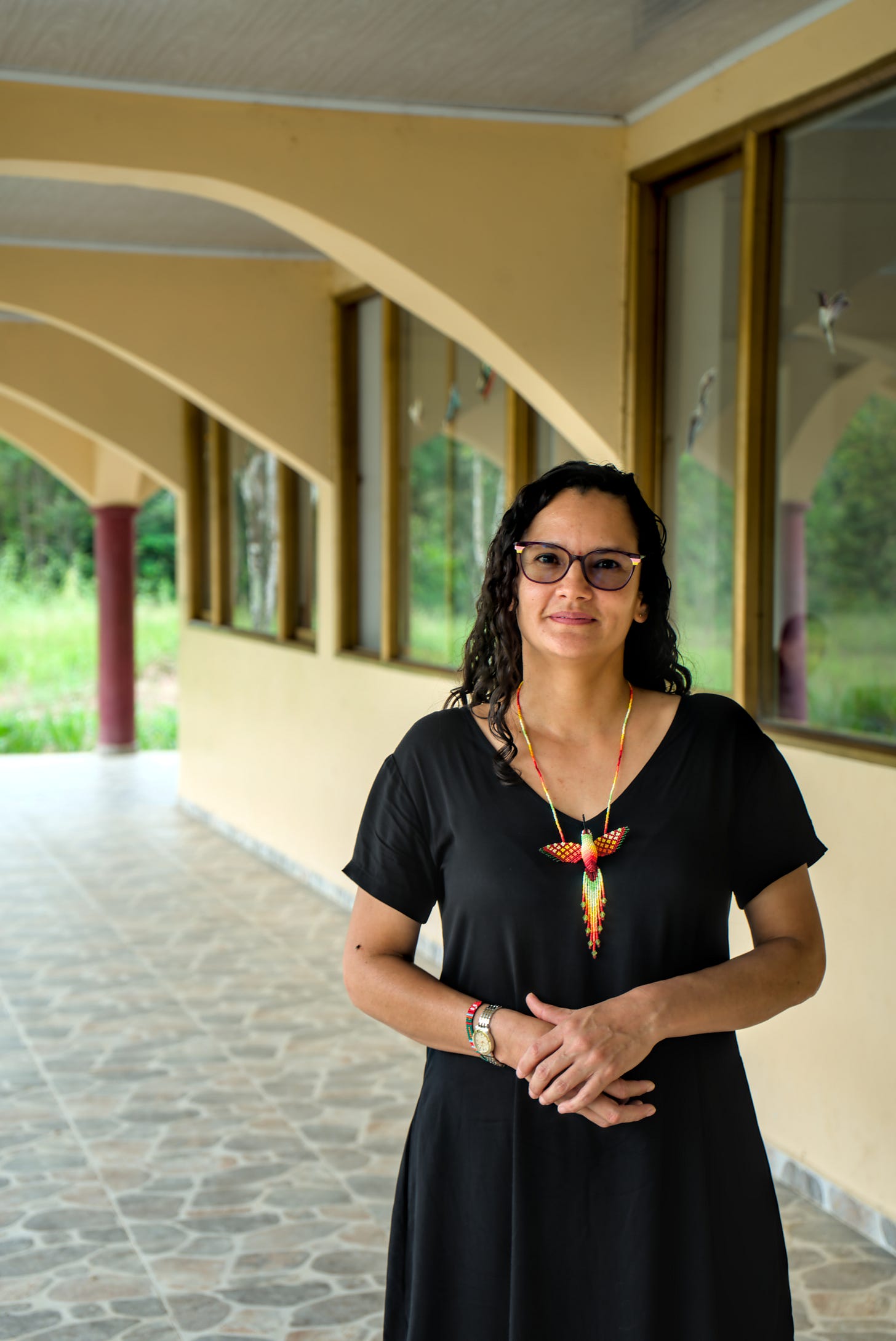Beyond Coca: a photo-series
Portraits from Putumayo’s First Public University
Recently, The New Humanitarian published our investigation into how the first public university branch in Puerto Asís is trying to make a difference in Putumayo — a department deeply affected by Colombia’s armed conflict.
For now, the University is little more than a few classrooms in an old wing of a high school on the outskirts of town. But the University of the Amazonía—headquartered in Caquetá—has ambitious plans, hoping to build a 2,000‑student campus in the coming years.
Still, its first cohort of 26 students, their teacher, and an ambitious administrator are eager to get started. They’re not waiting around for dedicated funding.
They’ve already started studying agro-ecology — the science of farming in a way that works with nature to grow food sustainably while protecting the environment and supporting biodiversity. It’s a bold and visionary choice, in a region that relies on farming and coca-cultivation inside the severely threatened Amazon rainforest.
Even in the shadow of violent armed groups, who continue to hold this region in a stronghold, this cohort is determined to learn sustainable agriculture techniques that may, over time, provide them with alternatives to coca cultivation and allow them to undermine criminal control in this area.
The portraits below highlight their voices.
Jessica Álvarez
Before her first birthday, Jessica Álvarez and her family fled the violent armed groups in Puerto Asís, leaving their farm behind. In 2021, she returned to her hometown to study at a government-funded technical institute, SENA1, and worked in water management. But she always wanted more: “My goal has always been to become a professional,2 something environmental, something tied to caring for nature.”
The University gave her that opening, not only because of its agro-forestry program but also because it allows Jessica to live on her family farm, a few kilometers outside Puerto Asís, saving costs.
“They make their presence known, even without killing anyone” she says of the “invisible” armed groups. She talks about the fear communities have carried for decades, but says her focus in on her education.
“You have to stay on the straight-and-narrow — behave well. We all know they are here, but for now we live in peace.”
Her vision is to turn her family’s land into a model agroecological center: planting sustainably, protecting forests, and cutting back on chemicals.
“First, I want to change our farm, to lead by example and show that it’s possible,” she says. “When people see real change, then they’ll believe.”
Jenny Riascos
Higher education seemed out of reach for Jenny Riascos until the local campus opened in January.
“Many people from here don’t have the financial means to go to a city and study. That was my case,” she said.
There’s also pressure to contribute to the household income, which makes deferring a paycheck to study an impossible choice for many. And for some, she says, it also makes working for criminal groups tempting — many of her schoolmates dropped out to cultivate coca or join an armed group.
“They’re good at the psychological game — playing on your need to bring home money, telling you all the things you can buy,” she explained.
Though Jenny did not hesitate to join the cohort, she says, it’s still a struggle. “Yes, the university is public and you don’t pay much. But you still have to eat, pay rent, etc.”
Yet she’s determined to finish.
“My dream is to have a farm that can sustain my family and be environmentally sustainable,” she says. “I want to apply everything I’m learning here.”
Imer Ortega
At 16, Imer Ortega, is one of the youngest students in the program — originally from a riverside community an hour away, he had to move into his own apartment in “the city” to attend.
“It was a drastic change... going from being at home where my parents helped me with everything to doing everything alone. Laundry piles up, laziness kicks in... now I have to be responsible.”
Raised in a farming family, the agro-forestry program felt like a natural fit for Imer.
“I like everything that has to do with the countryside. I’d like to implement an organic way of life so there is less contamination,” he said.
Of his high-school class, only one other person went on to college — many now work in illicit economies. “They think, ‘I'm not good at studying, I don’t know what to do,' and they turn to armed groups to earn money,” Imer explained
For him, education offers a different path forward, even if he has to take on adult responsibilities.
“When my university acceptance letter came, it was the best news!” he says.
It’s an incredible opportunity for us campesino youth. It helps us achieve our goals and our dreams.”
Diana Patricia Vargas
Diana Patricia Vargas is an industrial engineer who moved to the Putumayo countryside more than 20 years ago. Her mission is clear “Education here is about snatching kids away from that system [of illicit crops and armed groups]. And guiding them toward research instead,” she says.
Before becoming the first full-time professor at the new public university, Diana trained farmers in Amazonian fruit processing at SENA, but was frustrated by how little research there was on and for the region.
“Universities come, conduct studies, and take the results away with them, without sharing them with farmers,” she said.
To have the tools to conduct her own research, Diana left to pursue a master’s degree and then a PhD, before returning to the region. Now, she teaches Introduction to Agroecological Engineering at the new campus. Beyond the classroom, she envisions the university as a hub for research that can support farmers and strengthen local economies.
For her, changing dangerous agricultural practices is as much about protecting the farmers as it is about protecting the Amazon.
“They fumigate in shorts and sandals, then go home and sit with their children still covered in chemicals. They wash chemical containers and reuse them for drinks,” she says. “It’s poison.”
By raising awareness, she hopes students will promote safer, sustainable systems and explore crops such as Amazonian fruits and silvopastoral methods.
She knows the road ahead is long — that organized crime is entrenched in society.
“Many girls drop out to marry into drug trafficking or armed groups... they become second or third wives just for ‘security,’” she says. Yet, seeing students making the sacrifice to study gives her hope.
“The other day, a student asked me, ‘When will you take me for a ride in your truck?’” she tells us. “And I told her, ‘If you study, you’ll buy your own someday.’"
SENA: Servicio Nacional de Aprendizaje (National Training Service) is a Colombian government institution that offers free technical and technological education, vocational training, and short courses aimed at improving workforce skills. It operates under the Ministry of Labor and provides accessible education opportunities for individuals, especially those from rural and low-income backgrounds.
In Colombia, a "professional" refers to an individual who has completed a university-level degree program. This professional status distinguishes them from those with technical or technological training (such as those from institutions like SENA), and is associated with broader career opportunities, higher social status, and greater earning potential.




